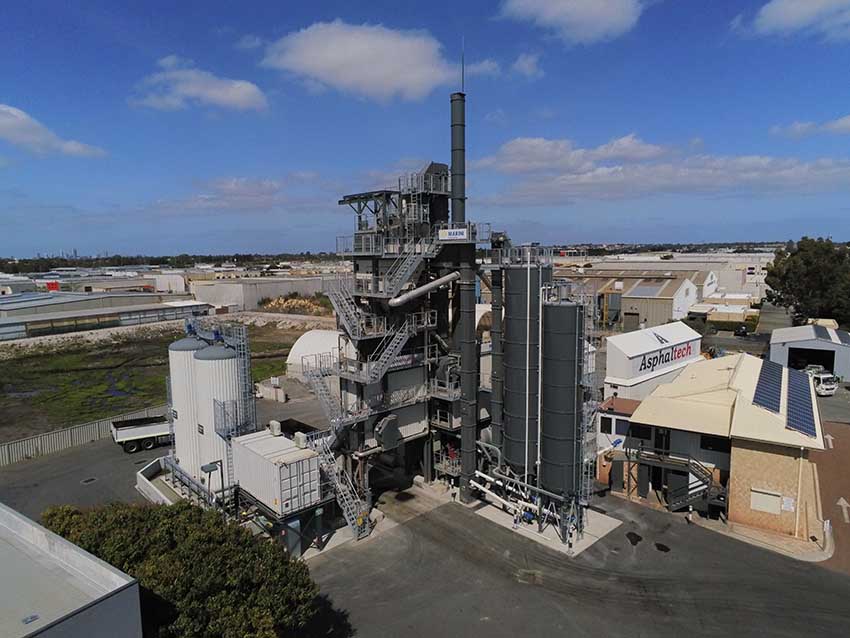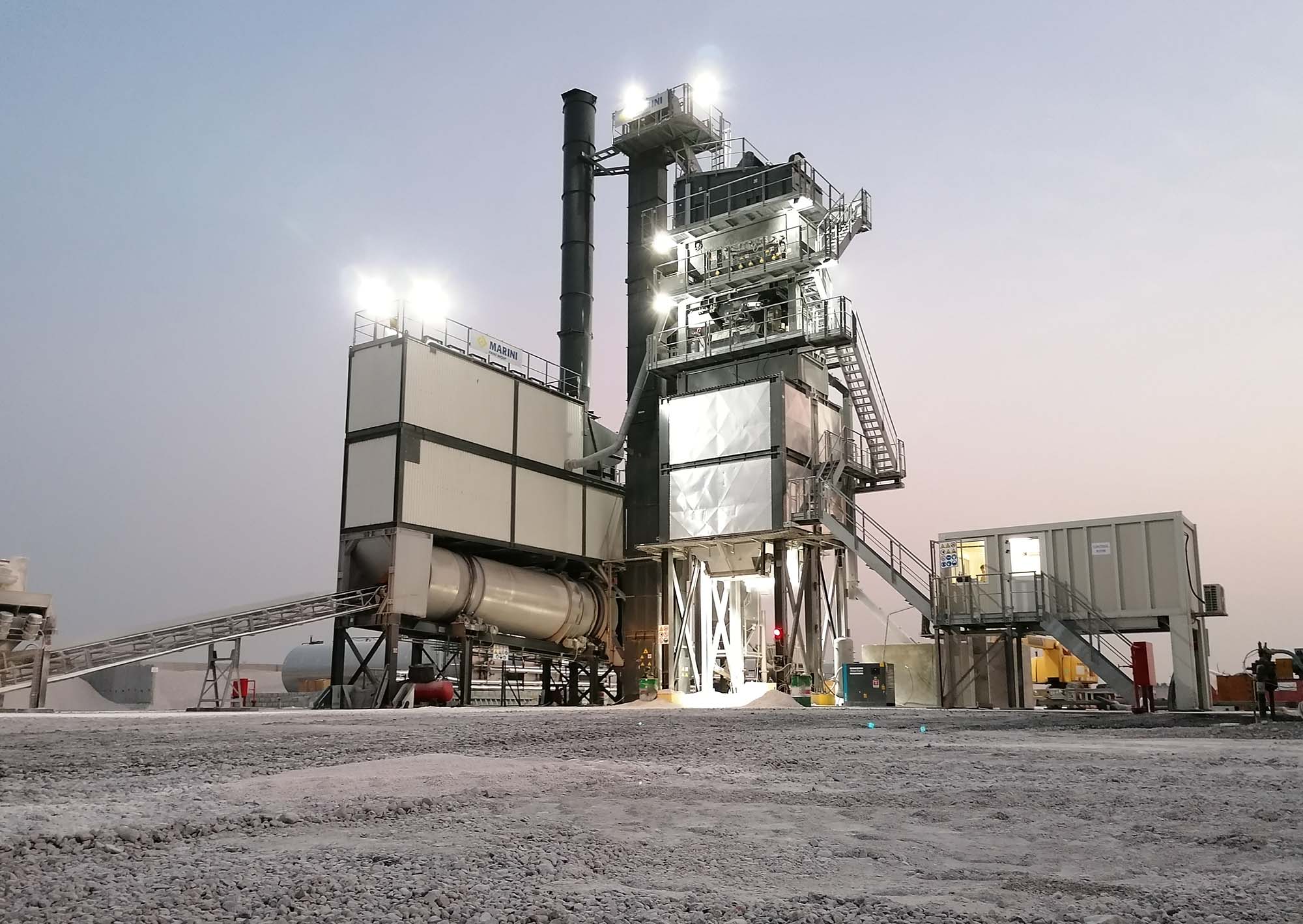Established in 1899, today a Fayat Group Company, Marini is a world leader in the manufacturing of stationary and mobile batch asphalt plants with manufacturing sites in Italy, Turkey, China, India, and offices in Russia and UAE and a global partner network. With a capacity of up to 480 t/h, relying on the most modern technologies and over 120 years of experience made in Italy, Marini’s equipment distinctive features allow customers around the world to produce low energy consumption asphalt using up to 100% of recycled asphalt pavement (RAP). Unique project management capabilities combined with outstanding technical support, service availability, a global footprint and a dedicated training Academy make of Marini the customer’s choice when it comes to reliability, innovative technology and comprehensive effective support.
For more information about Marini, please visit https://marini.fayat.com.
Interview with Luca Camprini, CEO of MARINI, Asphalt Plant and Machinery Divisions and VP Sales and Marketing of Fayat Mixing Plants.
Easy Engineering: What are the main areas of activity of the company?
Luca Camprini: Marini is an undisputed leader in the field of batch asphalt plants.
The name batch plant comes from the fact that the asphalt is produced in batches every 45 seconds, depending on the capacity of the plant and the mixing specifications. This is the most widespread type of asphalt plant in the world, able to guarantee the highest level of flexibility in production and quality of the finished product. The batches depend on the type of production: every 45 seconds a complete batch is produced, after all the individual components have been weighed and metered separately. This type of plant is a must for producers who work for several clients at the same time, because the specifications can be easily changed, while maintaining a high level of output quality.
In addition, Marini can rely on a comprehensive asphalt plant product portfolio, pre-and after sales services, including retrofitting, training, commissioning and 24h availability.
E.E: What’s the news for 2021 about new products?
L.C: The focus in 2021 is to expand our existing portfolio for the European Market via our Class Tower Series and Marini Master Tower in order to meet the market demand for a high RAP (Recycle Asphalt Pavement) percentage into the mix and enhances energy saving.
E.E: What are the ranges of products?
L.C: Relying on a comprehensive product range with a capacity up to 480 t/h, the latest technologies and custom made solutions to meet the most demanding requirements, Marini portfolio consists of 5 main product lines with specific unique features as follows: the fully mobile series Xpress, the containerized Be Tower, the traditional Top Tower (the best compromise in terms of specification, reliability and traditional technology), the top custom solutions of the Class Tower series (designed for specific customer needs), the Master Tower series, a new revolutionary technology for a recycling up to 100% and energy efficiency.
E.E: At what stage is the market where you are currently active?
L.C: Europe slowed down as a result of the pandemic: governments approval processes and permission grant were delayed and in turn investment in infrastructure were placed on hold. We are now witnessing a trend turnaround, as the infrastructure industry is slowly restarting as well as the government permission approval processes has taken a new acceleration.
E.E: What can you tell us about market trends?
L.C: The increase of energy costs and the strong demand for crude oil products, encouraged the use of a high content of reclaimed asphalt in hot and warm mix asphalt.
As well as the reduction of the environmental impacts and the trend to produce more sustainable products, significantly encouraging the increased use of RAP. The highest possible reuse of reclaimed asphalt is therefore a major task for all future generations and even today we can identify at least three main benefits:
- Use the RAP is an ECO-SUSTAINABLE choice;
- Use the RAP is a COST-EFFECTIVE decision;
- A pavement made with RAP can perform even better than a new one.
As an organic material, we have to keep in mind that the bitumen changes its mechanical characteristics, chemical composition and microstructure due to environmental effects over its lifetime. The loss of volatile components at elevated temperatures and oxidation are two main factors for these changes.
The properties of asphalt after ageing are fundamental parameters in order to define the long-term performances (e.g. durability) of these materials.
In accordance with the concepts just exposed, the characteristics of the residual bitumen contained in the RAP are the most important factors to be preserved and it is evident that the choice of the technology, i.e. how to treat and how to heat the RAP in the asphalt plant, is the key factor of success.

E.E: What are the most innovative products marketed?
L.C: The MARINI MASTER TOWER represents a new milestone in hot and warm mix asphalt production in terms of use of recycled materials, low emissions and low energy consumptions.
All traditional technologies available in the market are based on the use of a dual dryer system, each one fitted with its own burner. It goes without saying that the dual dryer operation is high energy consuming, exceeding the limits fixed by international regulations and leading not only to significant consumption of both fuel and electricity but also to high emissions into the atmosphere. Our innovative solution consists of the simplification of the components meant for heat generation: we do have two dryers, but we use only one burner capable of supplying enough energy to heat up the virgin materials in the first drum, and transfer the heat to the second drum (depending on the mix to be produced).
Through the “refined” hot air circulation systems, it is possible to utilize all the thermal energy in the system right down to the very last calorie.

In particular, the RAP is dried and heated by the hot gases coming from the virgin aggregates drum. The use of hot gases avoids both the contact between the flame of the burner and the recycled material and the direct radiation of the flame on the RAP, limiting in this way the picks of temperature during the heating process of the recycled material.
The RAP materials exit from the RAP dryer at a temperature of 160 °C allowing the operator to produce asphalt with 100% RAP or asphalt with high percentages of RAP without overheating of the virgin aggregates.
The two dryers are placed above the mixer to prevent any possible sticking due to the hot recycled materials.
The virgin aggregates reach the mixing tower screen directly from its discharging chute avoiding in this way the typical thermal losses due the hot elevator in the traditional plants, reducing also the wear of both elevator buckets and chain.

E.E: What estimations do you have for 2021?
L.C: No matter the pandemic and delays in the government permissions approval process, the market is coming back active in the field of asphalt plant as a results of investments in infrastructure re-start.
MARINI S.P.A.
Via Roma, 50 – 48011 Alfonsine (RA) Italy – Tel. +39 0544 88111
Website: www.Marini.fayat.com
Email: info@marini.fayat.com

